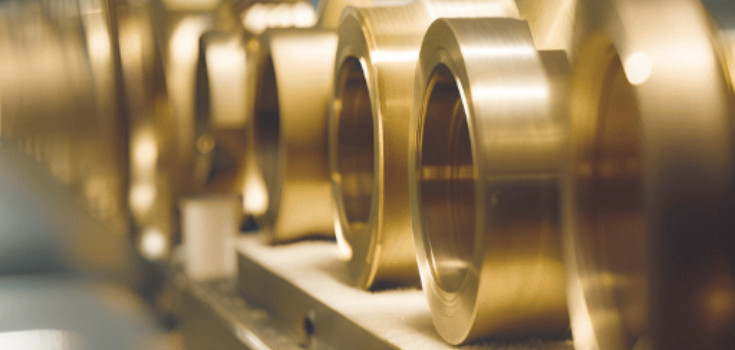You might be asking, does brass rust? It’s a good question because rust can cause big problems for many metals, especially iron and steel.
In this guide, you will learn what happens to brass over time and how it reacts to different conditions.
What is Brass?
Brass is an alloy of mostly copper and zinc. Usually, it has about 60-70% copper and 30-40% zinc. Changing these amounts changes how strong, flexible, and resistant to corrosion the brass is. Sometimes, other metals like lead, tin, or aluminum are added.
Does Brass Rust?
No, brass does not rust because it does not have iron. Rust happens only to metals with iron. But brass can still corrode in tough conditions
One common change is tarnishing, which makes the surface look dull because of a layer called patina. Patina is greenish and made of copper compounds. In very harsh places, brass can lose zinc, a process called dezincification, which can make it weaker.
Brass Rusting Properties vs. Alloy Composition
These parts of brass change how it behaves:
Zinc: You add zinc to make brass stronger and more flexible. But if there is too much zinc, brass can lose zinc in tough conditions, which can cause damage. Brasses with less zinc, like naval brass and tin brass, resist rust better.
Copper: More copper means better rust protection. Copper reacts with water and air to make a thin layer that protects the brass underneath. Red brasses have about 80% copper and resist rust better than yellow brasses, which have 60-70% copper.
Other metals: Adding tin helps stop zinc loss and protects brass from rust. Lead makes it easier to shape and machine. Aluminum makes brass stronger and more rust-resistant.
Comparing Brass Rusting to Brass Oxidation and Brass Tarnish
Let’s compare brass rusting vs oxidation vs tarnish to understand them better.
Brass Oxidation
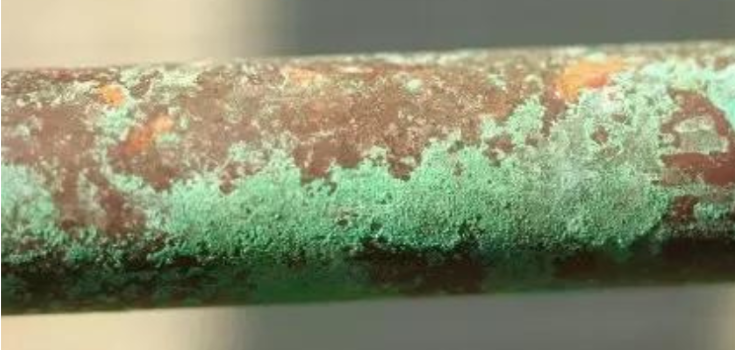
Brass has copper in it. When you leave it in the air and moisture, the copper reacts and forms a thin layer called copper oxide. This layer protects the brass. You might see the color change, sometimes turning green over time (called a patina).
Brass Rusting
Brass doesn’t rust. Rust only happens when iron reacts with air and moisture. Since brass doesn’t have iron (it’s made of copper and zinc), you don’t have to worry about rust.
Brass Tarnish
Tarnish happens when the copper in brass reacts with sulfur in the air. This makes a dark layer on the surface. But don’t worry, you can clean it off and bring back the shine.
Key Standards for Brass Corrosion Resistance

Here’s what you need to know about the main standards that help check how well brass resists corrosion:
ASTM Standards (from the U.S.)
The American Society for Testing and Materials (ASTM) has a few rules that help you test brass and see how strong it is against corrosion.
ASTM B887: This tells you what kind of brass is good at resisting dezincification (a type of corrosion). It also explains what the brass should be made of and how strong it needs to be.
ASTM B858: This shows you how to test brass by putting it in a chemical solution to see if it resists dezincification.
ISO Standards (from International Guidelines)
The International Organization for Standardization (ISO) also gives you clear steps to test brass and make sure it meets quality standards.
ISO 6509: This test checks if brass can resist dezincification. You put the brass in a copper chloride solution and see how deep the corrosion goes.
ISO 18086: This standard covers all copper alloys (like brass) and makes sure they need certain performance and corrosion resistance levels.
Types of Corrosion Brass Might Face
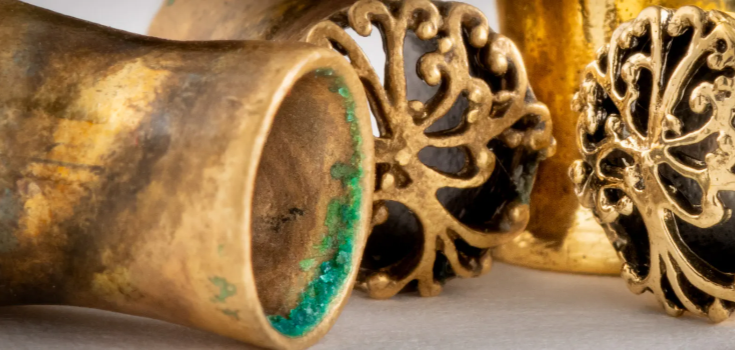
Here’s a simple table that can help you understand the types of corrosion brass might experience.
| Type of Corrosion | What Happens |
| Tarnishing | Your brass can look dull or discolored. This is just on the surface and easy to clean. |
| Dezincification | In salty or chlorine-heavy places, your brass can lose zinc and become weak and porous. |
| Stress Corrosion Cracking | If your brass is under stress and exposed to certain chemicals, it can crack or break. |
| Galvanic Corrosion | If your brass touches a more noble metal in a wet area, it can corrode faster. |
| Pitting Corrosion | Tiny holes or pits can show up on the surface of your brass in very harsh conditions. |
Factors Affecting Brass Corrosion and Rusting
Below are some of the things that can affect how brass corrodes or rusts:
Composition of Brass
If the brass has a lot of copper, it resists corrosion better. But if it has too much zinc, it can lose zinc over time (this is called dezincification). Adding things like tin, silicon, or aluminum helps protect it from corrosion.
Environmental Conditions
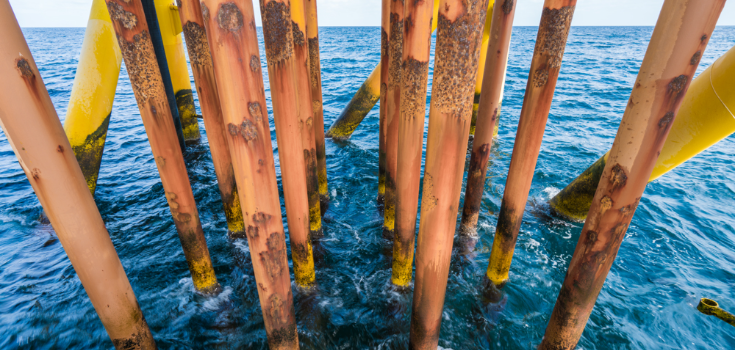
If the brass gets wet often, it corrodes faster (but it doesn’t rust like iron). Saltwater can pull zinc out of the brass. Acidic places also make brass corrode quickly.
Chemical Exposure
Being around sulfur can make the brass tarnish by forming copper sulfide. Ammonia is even worse — it can cause cracks in brass that’s under pressure or stress.
High Temperatures
If you use brass in very hot places, it will corrode faster, especially in tough environments.
Mechanical Stress
If the brass is bent, stretched, or under pressure, it can crack more easily due to stress and corrosion.
Protective Coatings
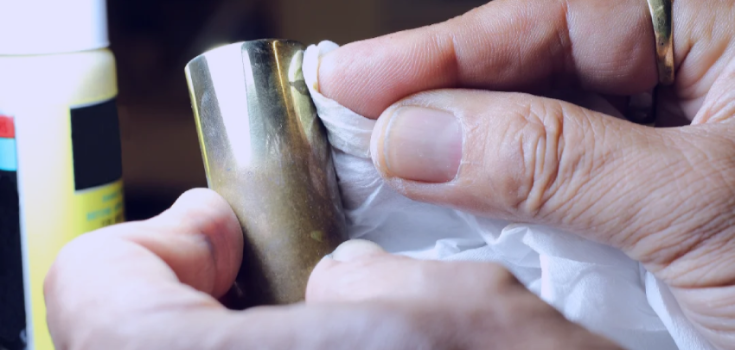
If you coat the brass with something that protects it, it won’t corrode as quickly.
Applications of Brass due to Rust-Resistant Properties
Here are some common ways you might use brass in everyday life:
Plumbing Accessories: You can use brass for water pipes, pumps, faucets, and boat parts. It doesn’t rust, so it lasts long around water.
Electrical Connectors: Brass works well for plugs, sockets, and wires. It lets electricity flow and doesn’t rust or break easily, so it’s great for things like switch parts and electrical pins.
Musical Instruments: Brass is perfect for making instruments like trumpets, trombones, and tubas. It sounds great and is easy to shape.

Decorations in Architectural Structures: You can use brass for fancy items like lamps, railings, and door handles. It looks good and doesn’t wear out easily, so it’s also used in building parts that need to last and look nice.
Automotive Parts: Brass is used in car radiators and heaters because it moves heat well and doesn’t get damaged by coolants.
Bearings and Bushings: If you need parts that move smoothly and last in tough places, brass is a good choice. It’s used in machines for low-friction parts. It’s also used in gloves made for working in rusty or chemical-filled places.
Rust-Resistant Coins: Some coins are made from brass because it doesn’t rust, is strong, and easy to press into shape.
Weapons: You can use brass to make tools that won’t spark, which is important in places with flammable materials, like chemical plants. It’s also used for bullet casings because it doesn’t rust, is strong, and easy to work with.
Methods for Preventing and Treating Brass Corrosion
Below are easy tips to help you protect and care for your brass items.
Preventing Brass Corrosion
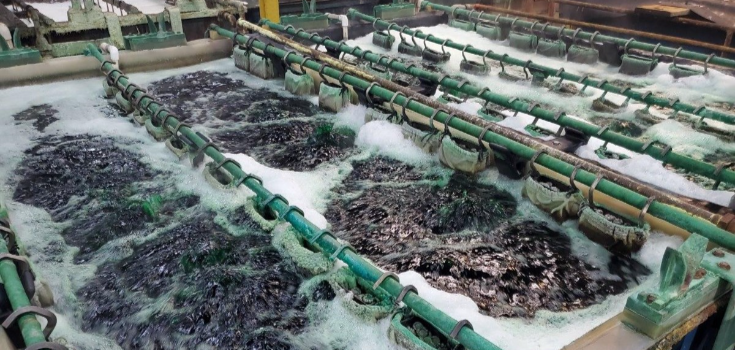
- Choose brass alloys with nickel, chrome, or DZR brass to resist corrosion.
- Apply zinc, nickel, or chrome plating, or use clear lacquers and nano coatings to block moisture and air.
- Apply anti-tarnish treatments to create a protective layer to stop tarnish and corrosion.
- Try cathodic protection; this method uses a sacrificial metal to protect brass from rusting.
- Wash brass with mild soap and water often.
- Look for early signs of corrosion so you can act fast.
- Wear gloves to avoid skin oils causing corrosion.
- Keep brass in dry, temperature-controlled places.
- Avoid exposing brass to ammonia, sulfur, salts, and other harmful chemicals.
Treating Existing Corrosion
- Use brass cleaners and polish with a soft cloth to remove tarnish and oxidation.
- After cleaning, add coatings or inhibitors to prevent new corrosion.
- For severe corrosion, use cathodic protection systems. This can stop damage, especially on large brass items.
Prevent Dezincification
- Choose brass with less than 15% zinc.
- Flush water lines regularly to avoid chemical buildup.
- Test water quality to spot and fix problems like high chloride.
Conclusion
Now you know that brass doesn’t rust because it has no iron. But it can still corrode in some conditions. Things like water, salt, chemicals, and stress can affect how your brass items wear over time. The good news is, with the right care and coatings, you can keep brass looking great and working well for a long time. Whether it’s for plumbing, music, or decoration, brass is a strong and useful metal you can count on.
If you ever need custom brass parts made with care and precision, DEK is here to help. You can count on us to deliver parts that last and fit your needs.
FAQs
How quickly does brass rust?
Brass doesn’t rust, but it can still corrode or change color over time. If you don’t use any protective coating, you might see signs of corrosion or a greenish layer within a few months or years, depending on the environment.
Does brasso remove rust?
Brasso is made to clean and shine brass, copper, and similar metals. It’s good at removing tarnish and making the metal look bright again. But it’s not meant to remove rust. If you need to get rid of rust, use a product that’s made for rust removal.
Does brass rust in salt water?
Brass doesn’t rust because it has no iron. But if you put it in salty water, it can corrode over time.
Does brass turn green?
Yes, brass can turn green over time. When it’s exposed to air, moisture, or certain chemicals, it can form a green layer called patina. This happens naturally and doesn’t always mean the brass is damaged.
Does solid brass rust?
No, solid brass does not rust because it does not contain iron. It can tarnish over time, but it won’t get rusty like steel or iron.
Does brass rust in water?
No, brass does not rust in water. Brass can only corrode, and this happens only if it faces very harsh conditions.

